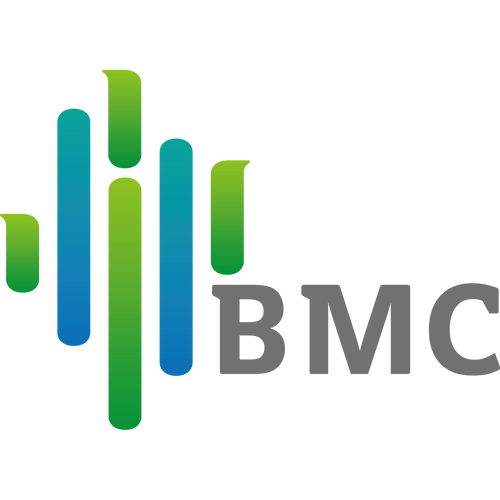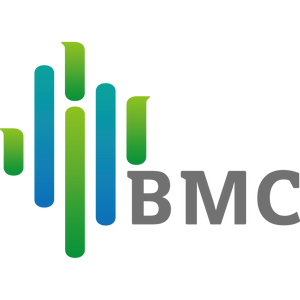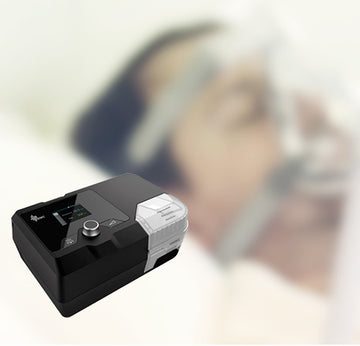Benefits of using a CPAP machine
CPAP can prevent or reverse the serious consequences of sleep apnea and is the most common treatment for obstructive sleep apnea (OSA). The CPAP machine sends pressurized air into your body through a circuit to keep your upper airway open during sleep. Therefore, CPAP can be used as an initial treatment for moderate or severe OSA, as well as in patients with mild OSA with insomnia, sleep disruption, or excessive daytime sleepiness. Besides protecting you from serious health risks CPAP machine can improve many areas of your life. Today we will introduce eight benefits of using a CPAP machine.
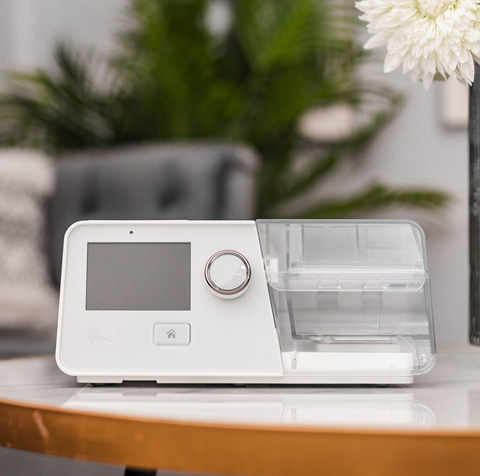
Diseases prevention
By treating your sleep apnea, you can reduce your risk of heart disease. Sleep apnea is associated with a variety of heart problems because it causes you to stop breathing multiple times a night. These pauses in breathing cause changes in your blood pressure and can lower your blood oxygen levels. This puts a lot of pressure on your heart. Heart disease mortality was higher in untreated sleep apnea patients than in those without sleep apnea or those with sleep apnea who received treatment. Prolonged use of CPAP therapy can protect you from heart problems and reduce your chances of dying from congestive heart failure, coronary artery disease, and irregular heartbeats.
CPAP treatment can also reduce your risk of stroke, one of the leading causes of death and long-term disability. A stroke is a sudden loss of brain function. This happens when one of the blood vessels leading to the brain becomes blocked or ruptured. People with untreated sleep apnea are two to four times more likely to have a stroke.
CPAP therapy can also play a role in diabetes prevention. Treating sleep apnea with CPAP can improve insulin sensitivity. Sleep apnea is associated with glucose intolerance and insulin resistance, both of which contribute to type 2 diabetes. Untreated sleep apnea increases the risk of developing type 2 diabetes.
Improve daytime alertness
Untreated severe sleep apnea can damage your brain tissue. As a result, you may experience drowsiness, daytime fatigue, difficulty concentrating, and memory loss. CPAP can restore your normal sleep patterns and increase your total sleep time by eliminating apnea during sleep. This will help you wake up feeling more refreshed and boost your energy throughout the day. Using CPAP improves your ability to think, concentrate, and make decisions. This also increases your productivity and reduces your chances of making costly mistakes. For example, CPAP can help you stay awake and focused while driving by reducing daytime sleepiness, reducing your risk of a car accident.
Eliminate snoring
By keeping the airway open during sleep, CPAP can reduce or even eliminate the sound of snoring. The sleep CPAP machine provides continuous positive airway pressure for the breathing airway, stretches the collapsed area of the upper airway soft tissue, keeps the upper airway open, and prevents snoring, suffocation, and apnea during sleep. However, the treatment of snoring is a long-term process, and you need to stick to it for a long time. The effect can not be achieved in a few days. Treating snoring is not only for the sake of your own health, but also can improve the relationship between husband and wife, so that you and your partner can get along in harmony at night, reduce impotence and frequent nocturia caused by snoring, and let you and your Your partner is happier and won't sleep in separate rooms because of your snoring.
Improve mood
Poor sleep quality may increase your risk of depression. While improving your sleep, CPAP can help improve your mood, reduce your risk of depression, and improve your overall quality of life. Some people with depression often nap, and excessive sleep is a way of escaping the negative emotions of reality, and this disturbance of work and rest can make the patient feel tired all the time; Sleep problems are not just caused by depression, they are also a contributing factor to depression, which can eventually become a vicious cycle. In severe cases, there will be slow behavior, passive and lazy life, unwilling to do things, unwilling to contact people around, living alone, alienating relatives and friends, and avoiding social interaction. Even physical needs such as eating and drinking and personal hygiene are ignored, unkempt and sloppy. And these can be greatly improved by improving sleep.
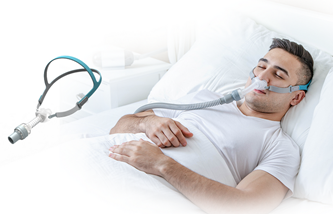
Lose weight
At the same time, a stable mood is more conducive to your maintaining a good figure. With the support of better sleep, you'll be more energized during the day and able to reduce your desire to eat high-carb foods to maintain energy and control your excess appetite. It also gives you more strength to stay active, keep fit and lose weight by exercising. The main thing is that once you lose weight and your body shape improves, this in turn promotes better sleep. Because it is known that the accumulation of excess fatty tissue can restrict movement of the chest wall or diaphragm and cause breathing problems, obesity and a lot of snoring may indicate sleep apnea syndrome. Many of our CPAP machine clients suffer from obstructive sleep apnea caused by obesity, which in turn leads to snoring. So losing weight is also a good way to reduce snoring.
The Cons of a CPAP Machine
The CPAP machineis an ideal tool for everyone to treat sleep apnea, but there are some side effects in the process of using the CPAP machine. Today, I will explain in detail the side effects of using the CPAP machine, and teach you how to use the CPAP machine correctly and reasonably to reduce breathing. machine side effects.
Cause uncomfortable
The biggest problem with using a CPAP machines that you are not used to wearing it. It is also difficult to use it for a long time if you don't like to wear it. To alleviate or solve this problem, we can wear the mask for a short period of time during the day or night before going to bed, such as watching TV or reading, and gradually familiarize ourselves with wearing a mask. Feel; then you can hook up the mask to the machine and let the machine work to pressurize, but before you go to bed, get familiar with the feeling of wearing the mask and having pressurized air coming out of the mask. Once you're familiar with wearing a mask, try wearing it every day you go to bed, whether it's a nap or a late night, because wearing it consistently will get you used to it quickly; Not so easy to fully accept it!
Cause a rash
Using a CPAP machine is very likely to cause the CPAP machine to leave skin marks on your face, and even a rash in severe cases, which can be fatal for those who have an important occasion to attend the next day, and for those It's also a nightmare for those who want to show up beautiful the next day. For this problem, experts suggest that we first make sure that the mask is worn correctly. If the mask is too tight, it may cause marks or pain on the face. It is best to ensure that the surface of the mask evenly touches the face, and then breathe gently to make Fit on the face to avoid air leakage. Adjust the position again after you are actually going to sleep.
Cause dry nose or mouth
The air constantly blown out by the CPAP machine itself is the source of dry mouth and nose; if you wear a nasal mask or a nasal pillow mask, if there is pressurized air leaking from the mouth due to opening your mouth during sleep, it will cause the nose to become dry. And the greater airflow in the mouth, the nasal cavity and oral mucosa will become drier; if you wear a nasal mask or a nasal pillow mask, even if there is no leakage from the mouth, if the mask itself leaks, it will make the nasal cavity mucous membranes dry. If there is any leakage from the mouth or the contact surface cushion (Cushion) of the mask and the facial skin, of course, you should first find a way to improve the leakage; those who breathe through the mouth use a full-face mask Face masks, because the air will flow through the mouth, it is easy to make the mouth dry; in addition, dry environment, or personal constitution, may make the CPAP machine make us feel the discomfort of dry mouth and nose more.
In order to avoid dry mouth and nose, and even nasal congestion, it is recommended that when purchasing a CPAP machine, if you do not have a humidifier, you should add a humidifier. The humidifier (Heated humidifier), and the humidity can be adjusted. After using the humidifier, the air blown by the machine will keep the nasal cavity, mouth or respiratory tract from being too dry. If the nasal cavity is dry, use physiological saline spray before going to bed. Nasal sprays are also a relief; but if you don't think a humidifier will help your dry nose, talk to your doctor to see if a steroid nasal spray can make you respond better to a humidifier.
Cause too much sleep
For patients with sleep apnea, during the sleep time when they have not used a CPAP machine in the past, due to the obstruction of the sleep airway and repeated hypoxia at night, the sleep efficiency becomes very poor. After the flight, the airway is no longer blocked, and the body and brain can start to sleep soundly for a long time. In the early stage, you may sleep very hard, and your body posture will not move at night. When you wake up in the morning, you will experience stiffness in the shoulders and neck, and discomfort in the lower back. If this is the case, don't worry, continue to wear a CPAP machine and maintain a good sleep quality, which will gradually improve after a period of time.
Cause "ghost phobia"
A small number of people will develop "phantom phobia" because of the full face mask covering the nose and mouth. Some people feel restricted or closed when wearing a mask. Psychologically, there will be "ghost phobia", and claustrophobia refers to a psychological disease that has a fear of closed spaces, which is a form of phobia. In response to this, on the one hand, from your own perspective, you should enhance your sense of security and self-confidence, and enhance your psychological quality. If you have psychological problems with the mask being closed or restricted, you might as well replace it with a nasal mask or nasal pillow, and do some relaxation training at the same time, which can adjust your tension in time, and try to slowly enter the claustrophobic environment that makes you fearful. Step by step, slowly desensitize. Usually ghost phobia improves over time, if not, talk to your doctor about possible treatments for claustrophobia.
Cause swallowing air
Swallowing is the excessive swallowing of air. This happens when your air enters your gastrointestinal tract, which includes your intestines and stomach. As air builds up, it can cause significant gastrointestinal and abdominal discomfort. The most common symptoms of gas swallowing are abdominal pain, bloating, flatulence, heartburn and acid reflux, partitions, and an uncomfortable feeling of "fullness". Swallowing air may indicate that the CPAP machine pressure is too high. Excess air can pass through the esophagus into the stomach instead of into the upper airway. For CPAP machine users who need higher treatment pressure, the so-called symptoms of so-called gas swallowing may be caused by excessive air swallowing (Air swallowing), resulting in flatulence and discomfort in the gastrointestinal tract. Discharge from the stomach to relieve abdominal discomfort and flatulence that the patient himself believes to be caused by gastrointestinal inflation. To solve this problem, you can try to change to another CPAP machine. When using a fixed pressure CPAP machine, if the required treatment pressure is higher, it is more likely to cause side effects of aerophagia. However, if you choose to use an automatic CPAP machine, because The average pressure throughout the night was lower and this condition was less or less severe. Other treatments include sleeping on a wedge-shaped pillow, taking medications for heartburn and gastroesophageal reflux disease (GERD), or using a bilevel and APAP CPAP machine.
Cause headaches and ear pressure
When the uninterrupted air flow generated by the CPAP machines continuously poured into the airway, it may be acceptable when inhaling, but when exhaling, if there is still a considerable pressure air flow continuously pouring into your airway, it will naturally Increase the difficulty and discomfort when exhaling, especially for patients who use a CPAP machine for the first time, it is easy to inhale, and breathing becomes very difficult. Especially for those who have a cold, flu, or allergies themselves, too much pressure can create pressure differences between your sinuses and different parts of your ears, which can cause headaches. For patients with poor pressure tolerance, low pressure can be used at the beginning to gradually adjust to the CPAP machine pressure. As mentioned above, after pressure adjustment or intolerance, you can use a fully automatic bi-level CPAP machine to give exhalation a lower pressure and improve exhalation tolerance. The problem of nasal congestion can be treated with common cold nasal congestion medicine or nasal spray, and the use of a humidifier can also help; please also confirm whether there is a problem with the pressure setting of the CPAP machine. If the headache or ear pressure is still not relieved temporarily after taking the medicine, you may need to stop the CPAP machine for a few days and wait for the cold or flu to pass.
Make a noise
The CPAP machine is not completely silent, and sometimes the CPAP machine makes a certain amount of noise. The noise of the CPAP machine can often interfere with the sleep of you and your partner, especially for patients with relatively light sleep. For the noise of the CPAP machine, you can choose a CPAP machine with less noise. The current CPAP machine has been very quiet. If you encounter a situation where the sound becomes louder, please check the filter cotton at the air inlet of the machine. If it gets dirty, the motor of the machine must be strengthened to suck enough air. This may be the reason why the machine is running loudly. Please follow the instructions in the instruction manual to clean or replace the filter material regularly.
6 Customer Concerns
How much is a CPAP machine?
Can COVID-19 patients use CPAP machines?
New coronary pneumonia patients can not only use CPAP machines, but even effectively treat new coronary pneumonia. In the absence of specific drugs, CPAP machines are one of the most effective treatments. Wearing CPAP machines can effectively improve blood oxygen in patients with new coronavirus pneumonia and reduce mortality. Academician Zhong Nanshan pointed out in the CCTV connection that nasal high-flow oxygen therapy and mechanical ventilation are currently one of the main ways to treat new coronavirus pneumonia.
However, there are still many people who do not understand the CPAP machine, or even resist the CPAP machine. It seems that getting on the CPAP machine means that they are critically ill. In fact, this is a misunderstanding. CPAP machines are divided into invasive CPAP machines and non-invasive CPAP machines. Invasive CPAP machines are what we call "tracheal intubation". When using invasive CPAP machines, patients are generally unable to maintain respiratory function or have respiratory failure. CPAP machines are mostly used in the treatment phase.
The main function of non-invasive CPAP machine is to maintain ventilation function. For example, patients with new coronavirus have difficulty breathing due to pneumonia, the body intake of air is insufficient, and the blood oxygen saturation is reduced, which brings a series of harm, and may even develop into critical illness. If breathing is assisted by a CPAP machine, it can effectively maintain the patient's blood oxygen saturation and reduce mortality. The Fifth Edition of the Diagnosis and Treatment Program for Novel Coronavirus Infected Pneumonia by the National Health Commission pointed out that general treatment "should be based on changes in oxygen saturation, and effective oxygen therapy measures should be given in a timely manner, including nasal cannula, mask oxygen, and high flow through the nose if necessary. Oxygen therapy, non-invasive or invasive mechanical ventilation, etc.”For the treatment of severe and critical cases, it is further clarified that "when patients receive standard oxygen therapy for respiratory distress and/or hypoxemia that cannot be relieved, high-flow nasal cannula oxygen therapy or non-invasive ventilation can be considered." Therefore, patients should not panic when they learn that they need to go on a non-invasive CPAP machine, which is one of the most effective treatments at present.
Does the CPAP machine induce dependence?
The CPAP machines only use pressure to open the airway to prevent collapse or obstruction. The breathing itself still depends on the patient, not the CPAP machine. Therefore, there is no dependence on the use of CPAP machines, and it will not affect the lungs.
